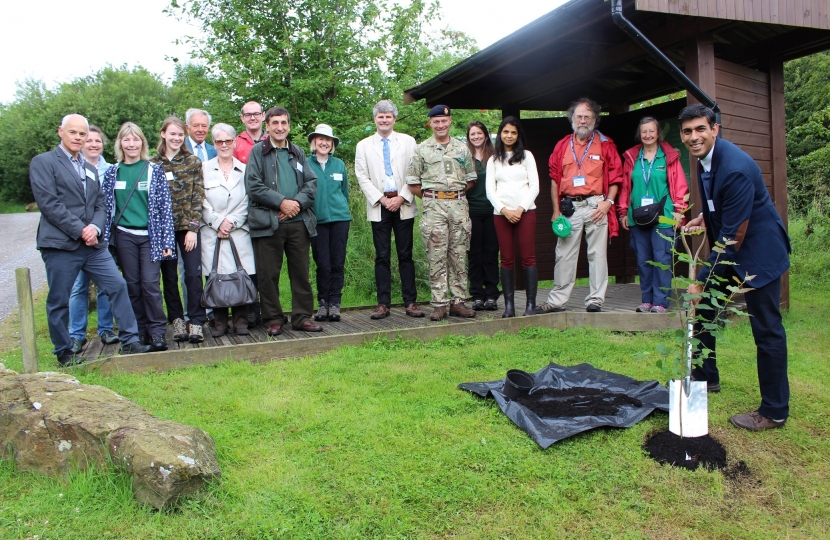
WITH the summer school holidays underway, families are facing the annual challenge of finding interesting and fun things to do during the long break.
This week I have a recommendation for a great day out which I suspect many people in North Yorkshire may not have heard of or know little about. Even better, it’s absolutely free.
Foxglove Covert Nature Reserve at Catterick Garrison is very much an undiscovered gem. I was told about it by my predecessor William Hague who was a keen supporter of this remarkable project established in 1992.
The Reserve’s 25th anniversary was held last weekend and I had the privilege of playing a small part in the celebrations. Along with a number of other supporters, I was given the task of planting a commemorative tree – in my case an aspen.
As the Queen’s representative, the Lord Lieutenant said, “trendsetting” and “North Yorkshire” are not often mentioned in the same sentence but in this instance that is absolutely right – Foxglove is the first and only nature reserve nationally on Ministry of Defence land.
Centre stage at the celebrations was Maj Tony Crease, who back in 1992 was a serving Army officer who saw the potential of some neglected land on the edge of the garrison, persuaded the MoD to release it and used some of his soldiers to start the work on what ultimately became the reserve.
Strangely enough, the IRA played an indirect part in the creation of the Reserve.
In the Seventies, when republican terrorism turned from Northern Ireland to softer mainland targets, the military beefed up base security.
At Catterick they threw a razor-wire barrier around the perimeter. In the process it took a shortcut across an angle in the existing boundary, sealing off part of a former training area.
Cut off on all sides, the land which had previously been used for training British tank crews to fight the Red Army in Eastern Europe, gradually reverted back to nature.
Slit trenches became haunts for rare great crested newts, water-filled tank scrapes became home to myriad species of water beetles, and foxgloves colonised foxholes, all unhampered by invasive humans.
When Maj Crease and his fellow Royal Scots Dragoon Guards first set to work clearing some of the vegetation – a process which took 18 months – they couldn’t stand up and stretch out their arms without touching trees.
Today, the Reserve has expanded almost fourfold to 98 acres and features a diverse range of habitats for birds, bees, butterflies, water voles and much more. In fact the Reserve is now home to more than 2,450 recorded species and they are still discovering more.
Throughout the summer holidays there are a range of activities with children in mind - like mini-beast safaris, bird ringing, pond exploring and tracking the Reserve’s more elusive wildlife.
Foxglove Covert is a fantastic spot and all the more amazing given its location within Europe’s largest military base. One word of warning: everyone has to access the Reserve through security at Cambrai Barracks but the soldiers on the gate are always very friendly! Like my predecessor William Hague, I have been delighted to assist the Reserve when it needs any help liasing with the Ministry of Defence.
Maj Crease, the Ministry of Defence, Natural England, charitable supporters and the many local volunteers who develop and maintain the Reserve all deserve our thanks for this wonderful place.
More information about the Reserve and the various events being held there this summer can be found at www.foxglovecovert.org.uk.
